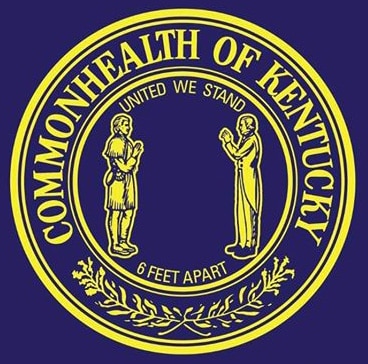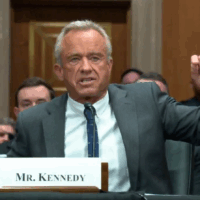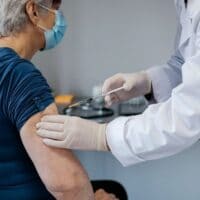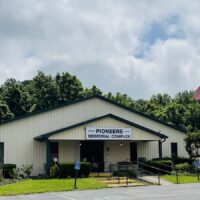Here’s an update on the coronavirus in Kentucky for Saturday, March 21:

- Gov. Andy Beshear, who has banned all “mass gatherings,” including church services, called on churches to ring their bells at 10 a.m. ET Sunday. (That will be 9 a.m. in Hopkinsville). “I absolutely know in my heart that God gives us wisdom and wouldn’t want us to be in a small, confined space where this coronavirus could spread,” he said at his daily press conference. “All of that needs to be done remotely,” by online streaming, TV or radio, he said, noting examples of virus spread in churches.
- Beshear said a flea market in Floyd County, which he did not specify, “tried to say their interests should come above others” by staying open. “Don’t be that group.” He urged Kentuckians to “not be the exception that doesn’t honor the sacrifice of others.”
- The governor announced the third death in the state from COVID-19, a 67-year-old Anderson County man who “had a number of other factors that contributed.” The man was among 24 newly reported cases, bringing the state’s total to 87; he noted that the figure will get less precise as more testing sites are established. He said the governor’s mansion will be lit in green, the color of compassion and renewal, to show care.
- He rejected President Trump’s idea that masks be sanitized and re-used. re-use of masks: “We don’t think we ought to be reusing those masks,” he said, reflecting the advice of the Centers for Disease Control and Prevention, which says masks should be re-used in very limited cases. Asked how he would judge Trump’s performance, Beshear said he was “done with the political side” and just wants the federal government “to work hard to provide what we need, and make sure independent contractors can qualify for unemployment.”
- The Food and Drug Administration announced that it had approved a test for the coronavirus that could produce results in as little as 45 minutes. It was approved for doctors’ offices but will first be used mainly by hospitals and emergency departments, according to the test’s manufacturer, Cepheid Inc.
- Dr. Anthony Fauci, director of the National Institute of Allergy and Infectious Diseases, said that as testing becomes more available, people should not flood testing centers because each test requires heath-care workers to use personal protective equipment that is in short supply. Here are federal Centers for Disease Control and Prevention guidelines for seeking care.
- A poll taken for The Commonwealth Fund, a national foundation, March 10-15 found that 87 percent of Americans want to get tested for the coronavirus. “Six in 10 said they want to get tested if the test is available, while one in four want to get tested if they think they might have been exposed to the virus,” the fund reports.
- Epidemiologist Larry Brilliant, who helped eliminate smallpox and warned in 2006 of a pandemic like this one, says we can beat it, starting with a lot more testing, he tells Wired magazine.
- Lexington speech pathologist Fatima Warren “wants you to know just how big of a pain it was to persuade doctors to test her despite the fact that she had a persistent fever, tested negative for a whole slew of other illnesses and generally felt like crap,” the Courier Journal reports. It took her nine days to get tested.
- Harrison Memorial Hospital in Cynthiana opened a “cough clinic” to look for signs of several illnesses, not just COVID-19. “What we’re trying to do is give people a reassuring place to come to to see if they need further testing or screening or other medical treatment,” Dr. Stephen Besson told the Courier Journal.
- Illinois Gov. Jay Pritzker issued a stay-at-home order. The chief infectious-disease epidemiologist at the University of Chicago urged compliance, warning, “The healthy and optimistic among us will doom the vulnerable.”
- Beshear, asked about a possible “shelter in place” order in Kentucky, said that “is a term that evokes emotions in people that don’t line up to what other states have done,” because it suggests taking cover and securing doors and windows to avoid an active shooter or hazardous materials. “What we will be talking about, and will probably have to take some steps on moving forward, is limiting your interactions among people,” while allowing essential outings and going outdoors “with social distance.” He introduced a new hashtag for social media, #HealthyAtHome, as well as #patriot.





